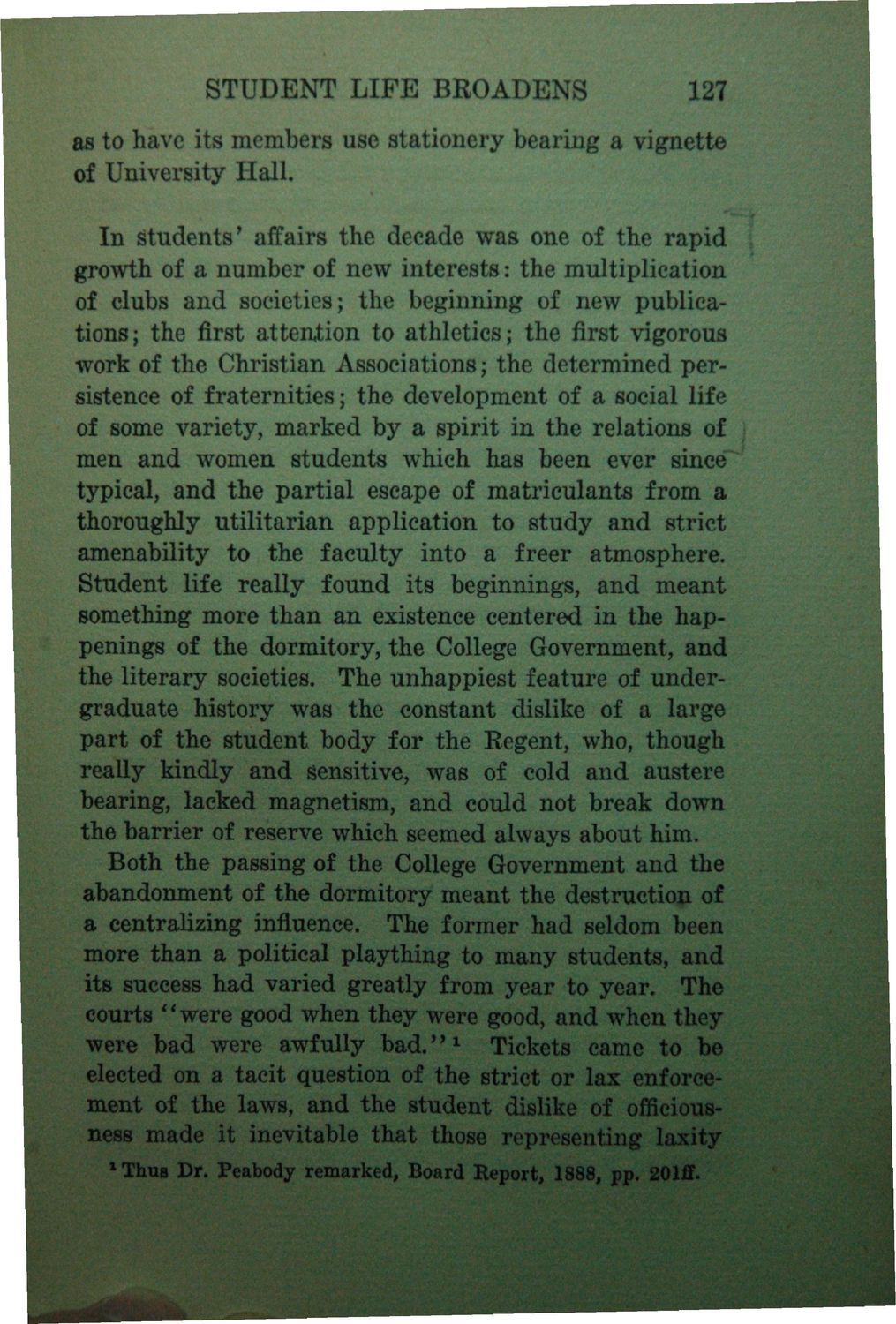| |
| |
Caption: Book - History of the University (Nevins)
This is a reduced-resolution page image for fast online browsing.

EXTRACTED TEXT FROM PAGE:
STUDENT LIFE BBOADENS 127 88 to have its members use stationery bearing a vignette of University Hall. In Students' affairs the decade was one of the rapid growth of a number of new interests: the multiplication of clubs and societies; the beginning of new publications; the first attention to athletics; the first vigorous work of the Christian Associations; the determined persistence of fraternities; the development of a social life of some variety, marked by a spirit in the relations of men and women students which has been ever since typical, and the partial escape of matriculants from a thoroughly utilitarian application to study and strict amenability to the faculty into a freer atmosphere. Student life really found its beginnings, and meant something more than an existence centered in the happenings of the dormitory, the College Government, and the literary societies. The unhappiest feature of undergraduate history was the constant dislike of a large part of the student body for the Regent, who, though really kindly and sensitive, was of cold and austere bearing, lacked magnetism, and could not break down the barrier of reserve which seemed always about him. Both the passing of the College Government and the abandonment of the dormitory meant the destruction of a centralizing influenceJ | The former had seldom been more than a political plaything to many students, and its success had varied greatly from year to year. The courts "were good when they were good, and when they were bad were awfully bad." 1 Tickets came to be elected on a tacit question of the strict or lax enforcement of the laws, and the student dislike of officiousness made it inevitable that those representing laxity I Thus Dr. Peabody remarked, Board Report, 1888, pp. 201ff.
| |